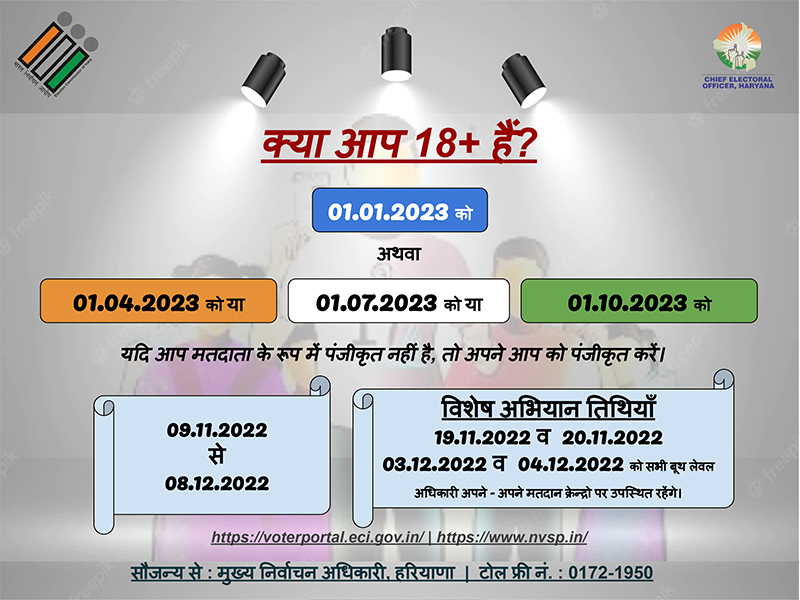Teaching Pedagogy
Agile Classroom
Q1. What are the objectives/ intended outcomes of this “best practice” and what are the underlying principles or concepts of this practice
The department of Computer Science and Technology, MRU in association with Xebia is offering two specialization B.Tech program Data Science Machine Learning and Digital Transformation Engineering. The objective of the program is to make the students ready for industry when they step out of MRU with degree.
An agile classroom is an environment in which students are motivated to do their best work and feel invested in the class as a whole. To achieve the adaptive, collaborative, outcome-driven learning experience, Learning iterations, Self Organization, Feedback & improvement, Workshops, Group huddles, Group Huddle.
With this objective and vision of department and in association with Xebia, CST department prepared Agile Classroom for students with the following objectives of teaching and learning process:
- Individuals and interactions over processes and tools.
- Responding to change over following a plan
- Allows more feedback opportunities
- Design impacts achievement
- Collaboration builds social skills
- Movement promotes engagement
- Greater interaction with teachers
- Caters to group learning
- Caters to the industry demand of team working
Q2. What were the contextual features or challenging issues that needed to be addressed in designing and implementing this practice
Computer Science and Technology department in association with Xebia offered two specializations Data Science & Machine Learning, and Digital Transformation Engineering. The learning environment of the programs are Agile Learning classroom. Below are some of the challenging issues that needed to be addressed in designing and implementing this practice:
- The control of learning in the classroom was Process centric (teacher centric) which was the challenge that was faced in traditional learning environment, but in Agile classroom control of learning is people centric (student centric).
- In traditional learning the management of the classroom learning was Command and control based which is another issue in learning, in Agile classroom management of the classroom is based on leadership and collaborative.
- In traditional learning the role of every student is an individual learner which make the learning of ths student boring, but in Agile classroom the role of the student is Self-organizing teams and it also encourages role interchangeability.
- Understanding of the Agile learning methodology to teachers and students is a challenge.
- Conversion of course learning to sprint and story line based learning.
- Change in the infrastructure of the traditional classroom, so that various boards for group activities and markers and round table learning is a challenge.
- Updation of various boards (parking-lot, group performance, group attendance, etc) by students and teachers on a regular basis is a challenge in new learning environment.
Q4. Describe the practice and its uniqueness in the context of India Higher education. What were the constraints/ limitations, if any faced (in about 400 words)
Agile Teaching methodology: By using Agile Classroom that self-organizes its own learning, uses visual accountability structures, and are immersed in reflective feedback. It is a structured learning environment that restores the freedom to teach and learn, where students re-claim responsibility for their own learning and teachers shift into facilitators and coaches.
- Information Radiators: Visual live boards depicting the Learning Process.
- Speedy and continuous learning of course concepts and ensures students satisfaction.
- All the stakeholders (students and teachers) are involved in the process which leads to technical excellence and good design.
- It facilitates close interaction between students and teachers.
- Its flexibility ensures the adaptation to changing circumstances. Changes added at the last moment or at a later stage of course learning can be incorporated without any problem.
Various Train the Trainer session with Faculty members
https://manavrachna.edu.in/latest/train-the-trainer-program-by-xebia-2/
https://manavrachna.edu.in/latest/train-the-trainer-by-xebia/
https://manavrachna.edu.in/latest/train-the-trainer-session-by-xebia/
https://manavrachna.edu.in/latest/xebia-organized-train-the-trainer-program/
https://manavrachna.edu.in/latest/train-the-trainer-program-by-xebia/
https://manavrachna.edu.in/latest/train-the-trainer-program-at-manav-rachna/
https://manavrachna.edu.in/latest/day-long-sessions-on-agile-methodology-2/
https://manavrachna.edu.in/latest/day-long-sessions-on-agile-methodology/
https://manavrachna.edu.in/latest/expert-lecture-on-digital-transformation/
https://manavrachna.edu.in/latest/cse-faculty-of-mru-attended-thedevtheory-conference-2018/
Industry Visit to Xebia for DSML and DTE specialization course
https://manavrachna.edu.in/latest/industrial-visit-to-xebia/
Q5. Please identify the problems encountered and resources required to implement the practice
Resource required:
- 06 round table for group learning in Agile learning concept
- Parking Lot for faculty teaching courses with detailed topic coverage in three separate sections (To-do, In progress, and Completed).
- Appreciation board which shows the best performers of class.
- Progress Board that reflects the update of Attendance, Test Score, Punctuality and Mobile usage of students in courses.
- Groups detail board.
https://docs.google.com/document/d/1wXfGJjmhbUuRCltkX7WUfxLYwrJ_Vn8PQFg_NkcBJ7s/edit


